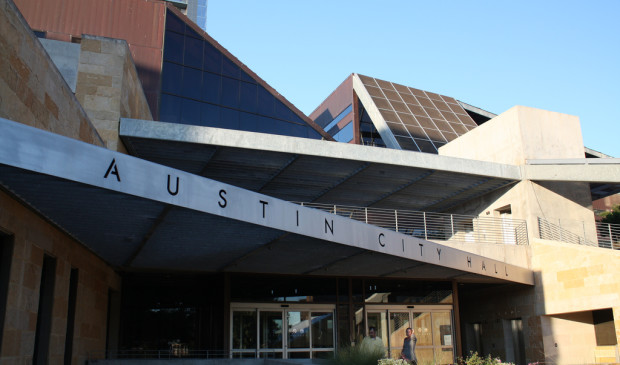Zimmerman seeks cut to Chapter 380 funding
Tuesday, August 11, 2015 by
Jo Clifton City Council Member Don Zimmerman has proposed that Council cut by 50 percent payments to companies that have Chapter 380 agreements with the city, as a way to “reduce the tax burden by over $6.8 million without cutting city services.”
Zimmerman’s message as posted on the Council Message Board states, “This would just be for FY 2015-16 and would not impact future years. However, I would be open to reducing the Chapter 380 agreements by 100% and make that change the policy moving forward.”
Over the years, the city has reached agreements that mostly involve abating property tax payments from businesses moving to Austin in return for investment in the city, a promise of jobs, use of local contractors and other benefits that Council believed were desirable. There are currently seven eight active Chapter 380 agreements, named after the state law that allows for creation of such agreements. Those agreements are with the following companies: Samsung, Apple, VISA, HID Global, Athenahealth, Advisory Board Company, the Domain and Hanger.
“Samsung Austin Semiconductor has kept every promise it made to this community since we broke ground in 1996,” said Catherine Morse, the company’s general counsel. That includes creating 2,500 direct jobs plus another 1,000 indirect jobs as well as hiring local contractors, she said.
Samsung would be hardest hit by any Council decision that would cut tax abatements. The total incentive for Samsung – which has a 100 percent property tax abatement over 10 years and a 75 percent abatement over the 10 years following that – is estimated at more than $62.8 million. Of that, according to the city’s calculations, somewhat more than $47.1 million has been abated.
Zimmerman told the Austin Monitor, “I hope that what this does is to tell companies, ‘Please don’t come here for subsidies. Don’t come to Austin if you have to have a subsidy.'”
Although previous City Councils have voted for the Chapter 380 agreements, Zimmerman noted that “the current City Council didn’t agree to that agreement, and neither did the taxpayers paying the bills.” He said the agreements are in fact not legally binding obligations on the current Council. He added, “We’re not trying to punish anybody here. … We’re just following the law.”
In his resolution, Zimmerman points to the language of several Chapter 380 agreements, which say, “In the event the city does not appropriate funds in any fiscal year for payments to or expenditures under this agreement, the city shall not be liable for such payments or expenditures, and the company, in its sole discretion, shall have the right but not the obligation to rescind this economic development agreement.”
It is not clear whether Zimmerman will have backing for his proposal from any other member of Council. There will certainly be pushback from members of the business community as well as the Austin Chamber of Commerce and the companies involved.
Chamber of Commerce spokesperson Jeremy Martin said, “Honoring our word is important in business and public policy. The City Council approved these agreements, negotiated in good faith with these companies, and it’s disappointing to see that a proposal would consider ending or reducing the city’s obligation to these companies that have met and exceeded their part of the agreements.”
Morse said, “Samsung invested not millions but billions in the site, and one of the reasons they chose Austin to build a … fabrication plant was the agreement. If the City Council voted to rescind its existing 380 agreements with employers, that would be the last major employer that would come in.”
She said Samsung was the largest taxpayer in the state of Texas in 2014, notwithstanding the agreements with the city, the county and the state as well as Manor ISD.
“We paid something like $32 million in property taxes in 2014 … more than anyone else is paying. … You cannot build a 300 millimeter (wafer) fabrication plant in the state of Texas without these agreements. We have 16 tools that cost over $100 million (that are taxed).” Morse said Samsung has a nearly $15 billion investment in Texas, the largest foreign investment in the state and perhaps the nation.
“The chips we make are the most cutting-edge application processors made anywhere in the world,” she said. It would be shocking if the rest of Council went along with Zimmerman’s proposal, Morse concluded.
Note: Though the term “tax abatement” is frequently used in conjunction with Chapter 380 agreements, the reality is a little more complicated than that. Companies participating in such incentives pay their owed taxes in full, though payments to the companies are often based on those taxes.
Photo by Anne Swoboda made available through a Creative Commons License 2.0.
This story has been corrected to include the city’s agreement with the Domain.
You're a community leader
And we’re honored you look to us for serious, in-depth news. You know a strong community needs local and dedicated watchdog reporting. We’re here for you and that won’t change. Now will you take the powerful next step and support our nonprofit news organization?











